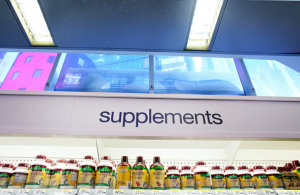A recent New York Times article reports that the New York State attorney general’s office recently tested herbal supplements from “GNC, Target, Walgreens and Walmart — and found that four out of five of the products did not contain any of the herbs on their labels.”
Unfortunately, this and other kinds of funny business is all to common in the supplement industry. It exemplifies why it is important to get supplements manufactured under good quality control and quality assurance. What makes it difficult to know if your supplements are good quality is that there are many factors involved. Information on supplement labels and manufacturer claims can be, at best, less relevant than consumers assume and, at worst, downright deceiving. Acronyms, like GMP, mean less than most consumers suspect.
Ensuring supplement quality requires extensive testing on every batch of raw materials and final product produced:
- every batch of raw materials used and every batch of final product must be tested for authenticity, potency and stability (shelf life).
- all raw materials need to be tested for microbiological and heavy metals contamination,
- herbs must be tested for contamination with herbicides, pesticides, fungicides
- herbal extracts must be tested for contamination with chemical solvent residues (because herbal extracts are frequently made with solvents that are carcinogens or toxic in other ways to humans)
- oils must be tested for rancidity
- fish oils must be tested for PCBs and dioxins
- perhaps most importantly – all testing must be done by high-quality, third party laboratories (i.e. not by the manufacturer or the raw material supplier)
Obviously, all of these tests to ensure supplement quality become expensive. How can a supplement sold for the cheapest price do all this testing? They can’t; they don’t.
To defray costs, many companies don’t test raw materials or finished products; others only test some batches. Some supplement companies buy their own machine for analysis. These approaches work well for the company’s bottom line but compromise value and even consumer safety.
Ensuring supplement quality is expensive and takes a lot of effort on the part of the manufacturer. I spend a lot of time and energy to make sure that my supplement recommendations are the safest and best quality possible to maximize effectiveness.
Be well,
Richard Malik, ND
Naturopathic Medicine in Salisbury, CT
Naturopathic Medicine in Manchester Center, VT

